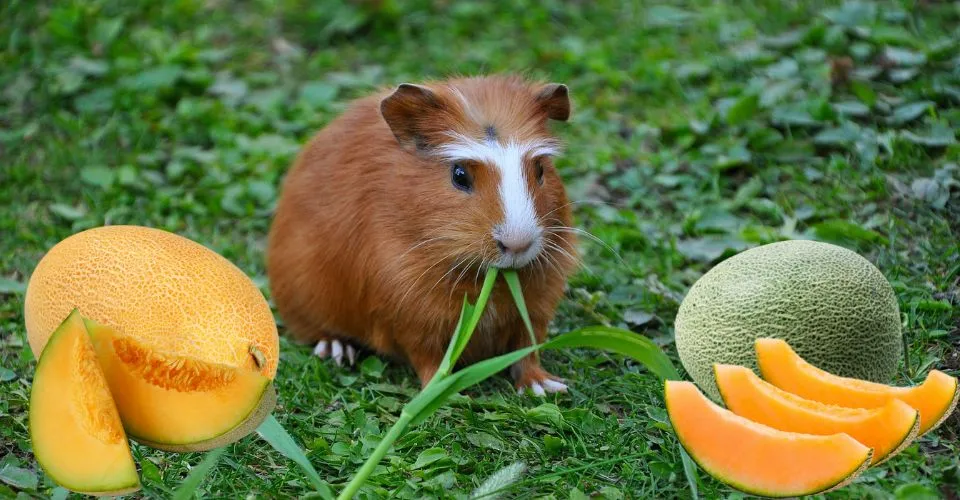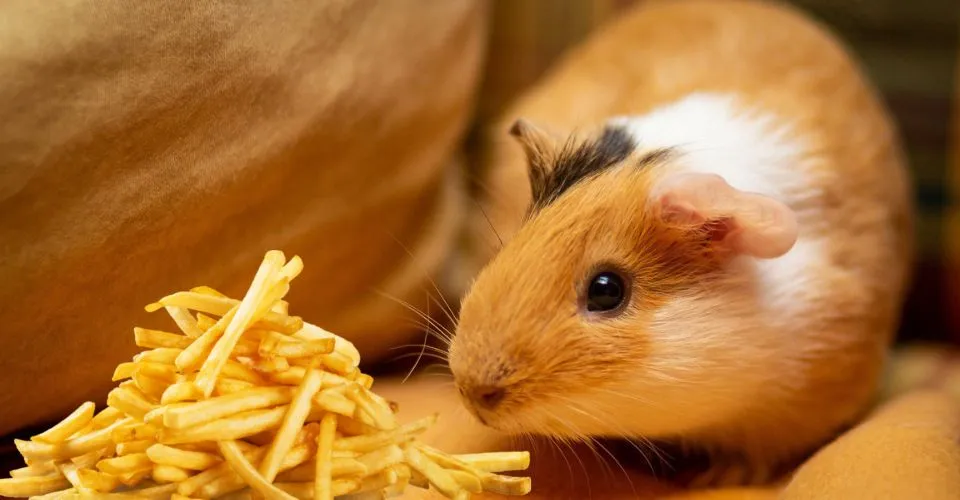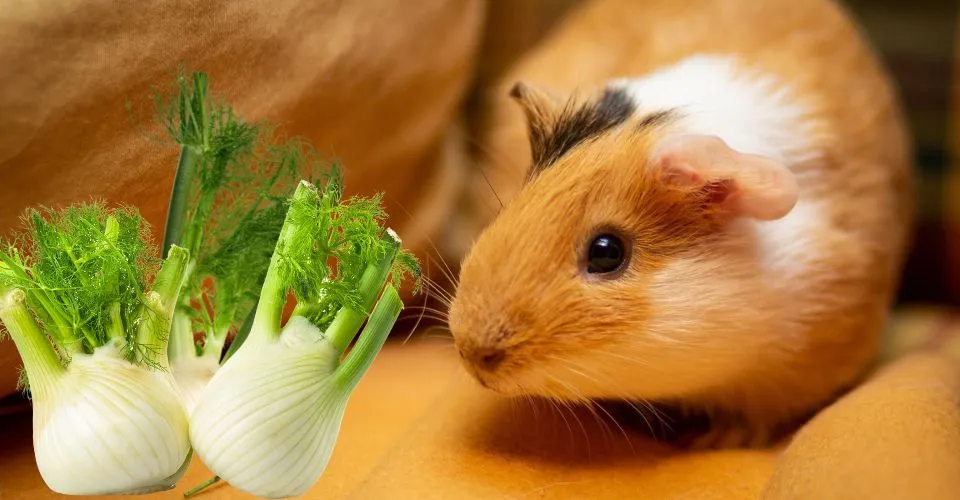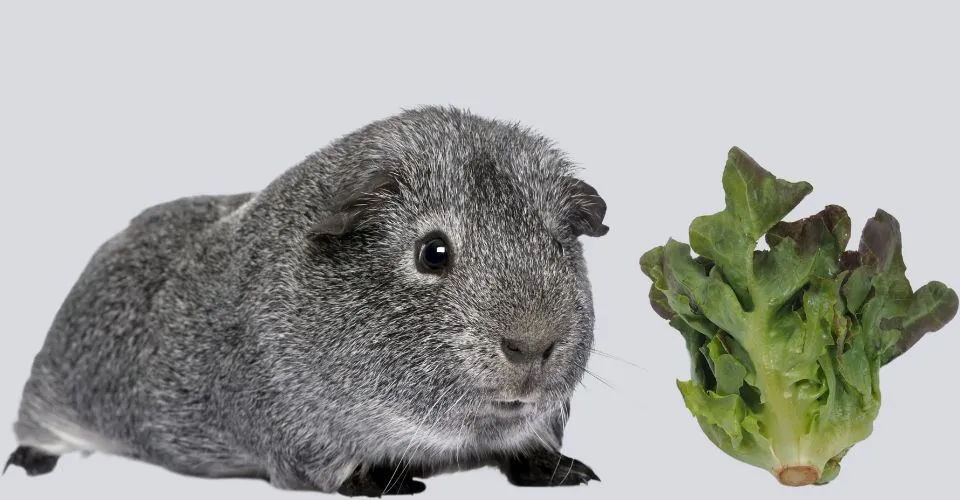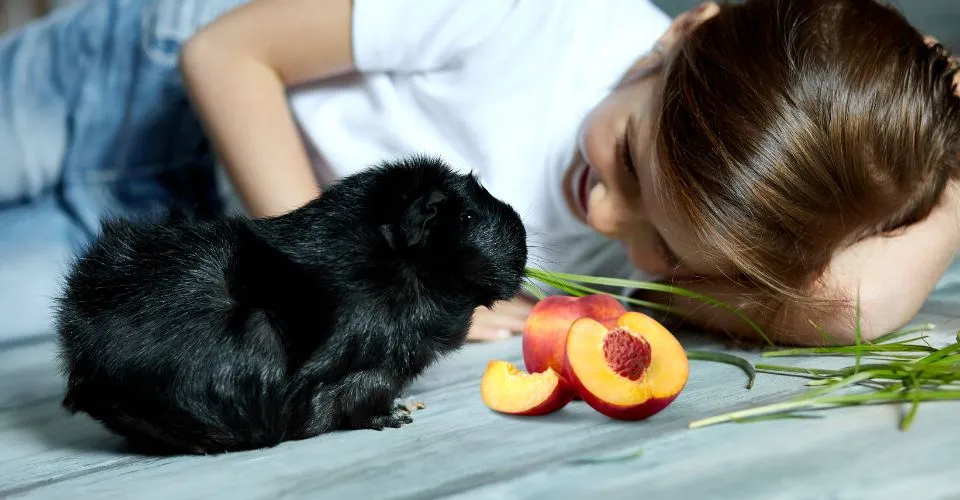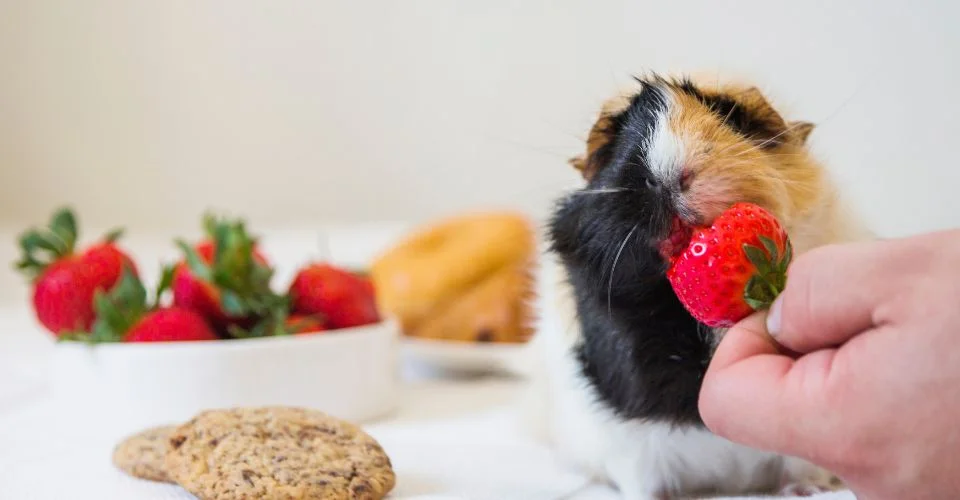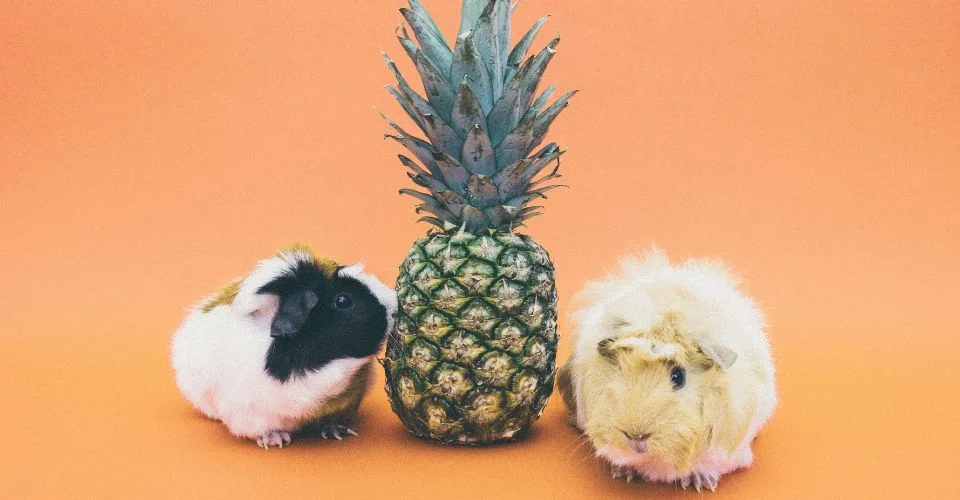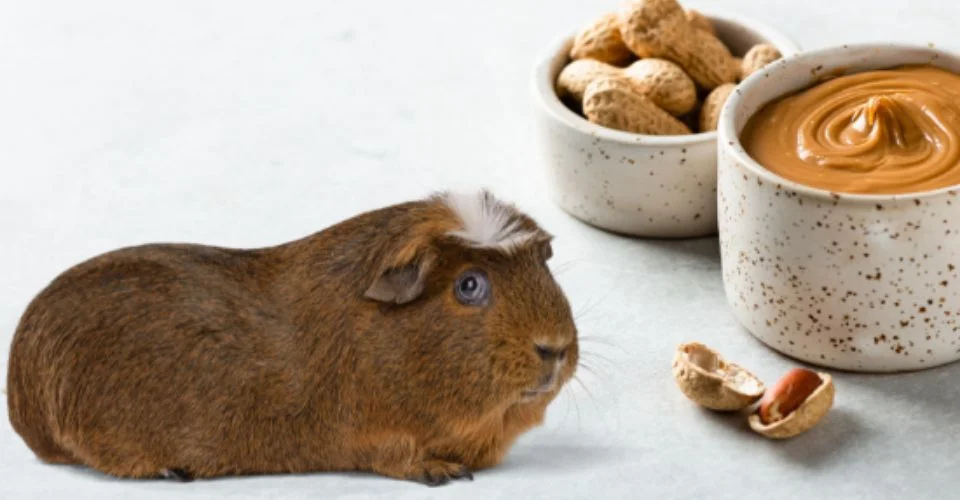Like watermelon, honeydew melon is a refreshing summer fruit. It is not only sweet and hydrating but also has to offer a host of health benefits to humans. So, while devouring honeydew melon on a hot summer day, you may wonder: Can guinea pigs eat honeydew melon? Is honeydew melon good for guinea pigs or bad?
Well, yes, guinea pigs can eat the rind as the flesh of the honeydew melon. It makes for a healthy, hydrating, and refreshing snack on a hot summer day. Just remove the seeds at the center, dice the melon into small cubes, and offer a few to your guinea pigs. we remove seeds so there is no risk of choking.
While honeydew melons and many other fruits and veggies are a delight for guinea pigs, you should always offer a mix of fruits and veggies, in moderate amounts. While you can offer one cup of fresh veggies per guinea pig every day, fruits should be offered occasionally as treats, once or twice a week. Like humans, guinea pigs cannot make their own vitamin C, so offer them about 1/8 cup (1 to 2 tablespoons) of vitamin C-fortified pellets.
Can Guinea Pigs Have Honeydew Melon?
Yes, guinea pigs can have honeydew melons. But given the high sugar content, you should only offer them a couple of small pieces of honeydew melons once or twice a week.
On hot summer days, or when your guinea pig is not drinking water, honey melon could help keep your piglets hydrated. Conversely, too much water could also upset the guinea pig’s stomach. So, if you observe loose stool in guinea pigs after eating honeydew melon, you should stop feeding them.
To find out what health benefits honeydew melon has to offer to guinea pigs and how and how often you should be feeding it to your guinea pigs, let’s first take a look at the nutrient profile of honeydew melons.
Nutrient Profile of Honeydew Melon
Below we have listed the amount of important nutrients present in 100 grams of raw honeydew melons, according to the USDA Food Central.
| Nutrients | Amount |
| Water | 89.8g |
| Calories | 36kcal |
| Protein | 0.54g |
| Fat | 0.14g |
| Carbohydrates | 9.09g |
| Dietary fibers | 0.8g |
| Sugars | 8.12g |
| Calcium | 6mg |
| Phosphorus | 11mg |
| Potassium | 228mg |
| Vitamin C | 18mg |
In addition to the above-listed nutrients, honeydew melon also contains vitamins A, B-6, E, and K. Besides lutein and zeaxanthin, honeydew melons contain many other antioxidants like selenium, thiamin, and beta-carotene.
Health Benefits of Honeydew Melon for Guinea Pigs
Brimming with water, low in calcium, and high in carbs and many other useful nutrients, honeydew melons make a healthy and hydrating snack for guinea pigs. Below, we have discussed some of the health benefits of honeydew melon for guinea pigs.
1. Keep Guinea Pigs Hydrated
Honeydew melons are brimming with water. There are 89.8 grams of water in 100 grams of honeydew melon. So, on hot summer days, it makes a great hydrating snack for guinea pigs. If your guinea pig is not drinking enough water, you can feed him honeydew melon to increase his water intake. This would help keep guinea pigs from dehydration.
2. Rich in Potassium
Potassium is an essential nutrient for guinea pigs. It promotes overall better health in guinea pigs by supporting the heart, lungs, and kidneys to function properly and fight arthritis. It also helps smoothen blood flow in guinea pigs and minimize muscle cramps. It also helps boost the overall immunity of guinea pigs. As honeydew melons contain 228 grams of potassium in every 100 grams, they make a great snack for guinea pigs.
3. Antioxidants in Honeydew Melons
Besides beta carotene, and selenium, honeydew melons contain two potent antioxidants named, lutein and zeaxanthin. Lutein helps decrease oxidative stress and inflammation in the liver. Besides that, both lutein and zeaxanthin are great for the guinea pig’s eye health. They also help prevent age-related vision loss in guinea pigs.
Beta carotene present in honeydew melons helps prevent free radical damage in guinea pigs and reduces the risk of tumor development.
Health Concerns of Guinea Pig Eating Honeydew Melons
Honeydew melon makes a great snack for guinea pigs as long as it is consumed in moderation. When fed in excess, honeydew melons not increase the risk of obesity in guinea pigs but also cause dental issues and urinary stones in guinea pigs. In the long run, they also pose a risk of diabetes in guinea pigs. Below, we have discussed these concerns in a bit more detail.
· Increased Risk of Obesity
Guinea pigs don’t usually overeat and are not prone to obesity. However, when they consume fruits with high calories and sugars, they become susceptible to obesity. Honeydew melons are high in calories and sugars. There are 36 kcal calories and 8.12g of sugars in 100g of honeydew melon. So eating honeydew melons in excess would lead to guinea pigs becoming overweight and eventually becoming obese. Besides impacting the lifestyle of guinea pigs, obesity would lead to many other health issues like arthritis and cardiovascular health issues in guinea pigs.
· Risk of Urinary Stones
The ideal calcium-to-phosphorus ratio for guinea pigs should range between 1.3:1 to 1.6:1. 100 grams of Honeydew melons contain 6mg of calcium and 11mg of phosphorus, which means its Ca:P ratio is 1:1.83. So, eating honeydew melons alone could increase the risk of phosphate stones in guinea pigs. Besides that, it could also weaken guinea pig teeth and bones.
| An imbalanced Ca:P Ratio is Bad for Guinea Pigs! High calcium to phosphorus is just as bad as the low calcium-to-phosphorus ratio. Where a high calcium-to-phosphorus ratio poses the obvious risk of concentration of calcium in guinea pig urine and the formation of bladder and kidney stones in guinea pigs; a low calcium-to-phosphorus ratio (more phosphorus than calcium) could be even riskier. It would trigger the release of calcium from guinea pig teeth and bones. Moreover, high phosphorus could lead to the development of phosphate stones in guinea pigs. |
How to Feed Honeydew Melon to Guinea Pigs?
Here is how to feed honeydew melons to guinea pigs:
- Thoroughly wash the melon
- If your guinea pig does not like the rind, peel it off
- Scoop out the seeds in the center to remove the risk of choking
- Cut the melon into small bite-sized pieces
- Because it has a low Ca:P ratio, you should mix it with other fruits and veggies that are high in Ca:P ratio
- Ca:P ratio of the guinea pig diet should range between 1.3:1 to 1.6:1
- Never offer more than once or twice a week
Honeydew Melons and Guinea Pigs FAQs
Do Guinea Pigs Like Honeydew Melons?
Honeydew melon is guinea pig crack. Most guinea pigs go crazy for honeydew melons. That said, as its rind is a bit hard, some guinea pigs might not be interested in honeydew melons’ rind but will devour the flesh.
Here is a short video of five guinea pigs devouring the rind of honeydew melon.
Can Baby Guinea Pigs Eat Honeydew Melons?
No! Young guinea pigs younger than 3 weeks should not be given honeydew melons as they are high in sugars and could upset their stomach, leading to loose stool and diarrhea. Until baby guinea pigs are completely weaned (by week 3), they should feed on their mother’s milk and hay. Later you can start adding all sorts of guinea pig-safe veggies to your guinea pig diet.
Can Guinea Pigs Eat Honeydew Melon Rind?
Yes, guinea pigs can eat the honeydew melon rind. It is a bit hard but nothing strong guinea pig teeth cannot deal with. That said, spoiled guinea pigs or those with dental issues might not be interested in the honeydew rind.
Can Guinea Pigs Eat Cantaloupe Melon?
Yes, guinea pigs can eat cantaloupe melons. Like honeydew melons, cantaloupe is safe and healthy for guinea pigs as long as it is being fed in moderation. Where cantaloupe rind is safe for guinea pigs to eat as long as it is thoroughly washed, seeds pose a choking hazard and must be removed before you feed cantaloupe to guinea pigs.
Final Verdict: Can Guinea Pigs Eat Honeydew Melon?
Yes, guinea pigs can eat a couple of small cubes of honeydew melon once or twice a week. It has a low calcium-to-phosphorus ratio, so you should mix it up with other things that high Ca:P ratio. Where the rind of honeydew melons is safe for guinea pigs to eat, some piglets might be disinterested in it as it is a bit hard.
Check out other guides to what guinea pigs can or cannot eat:
